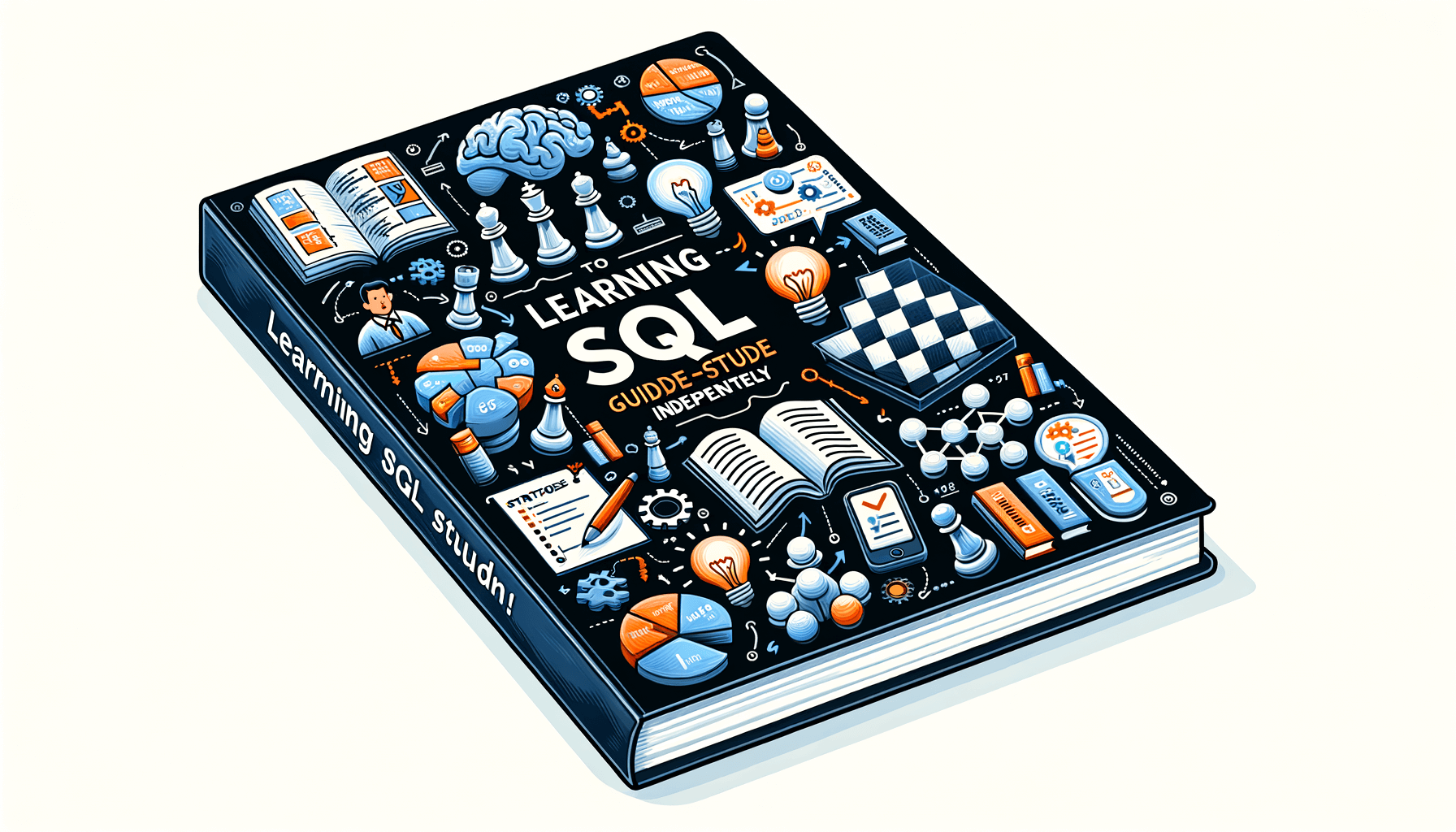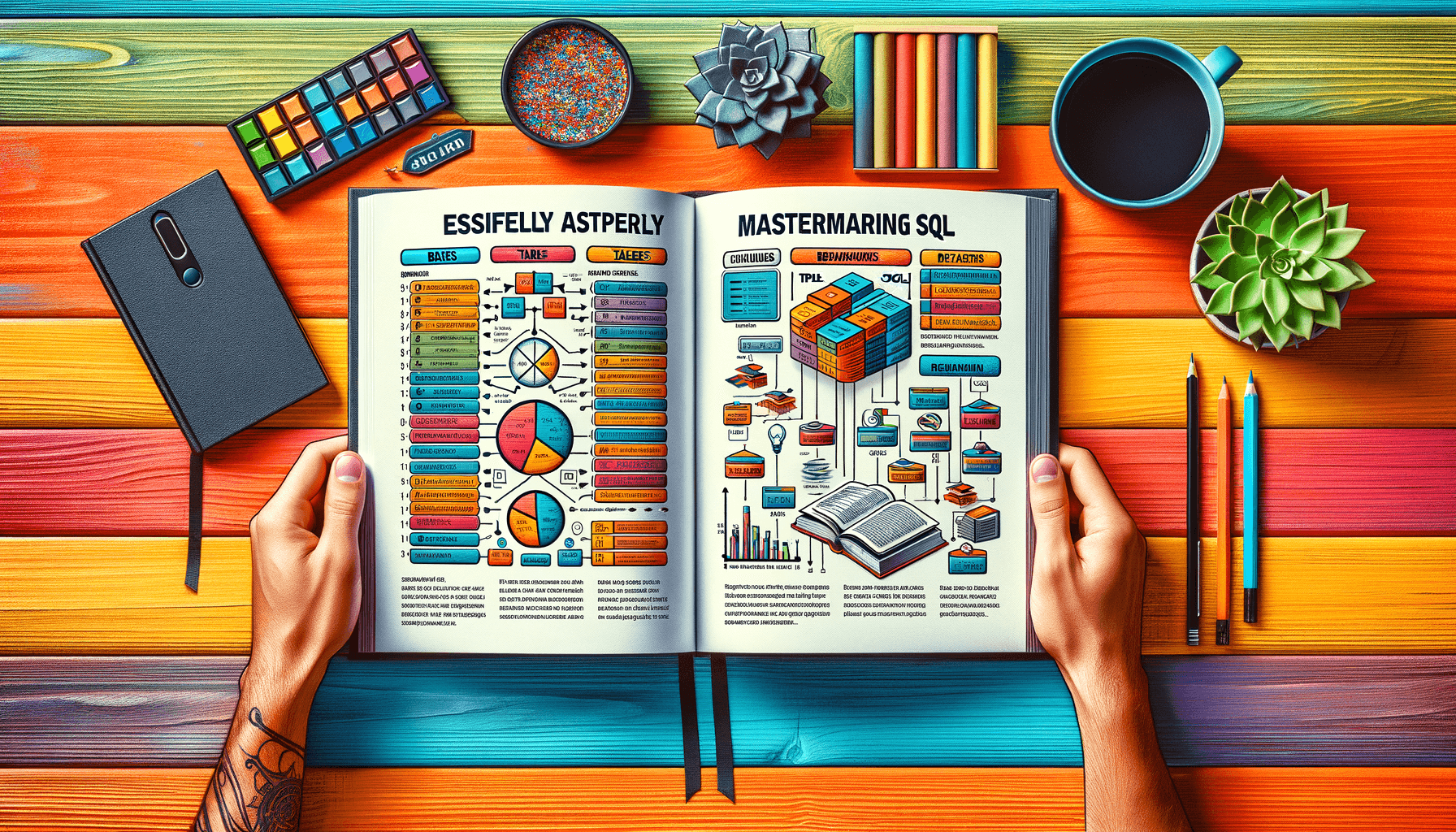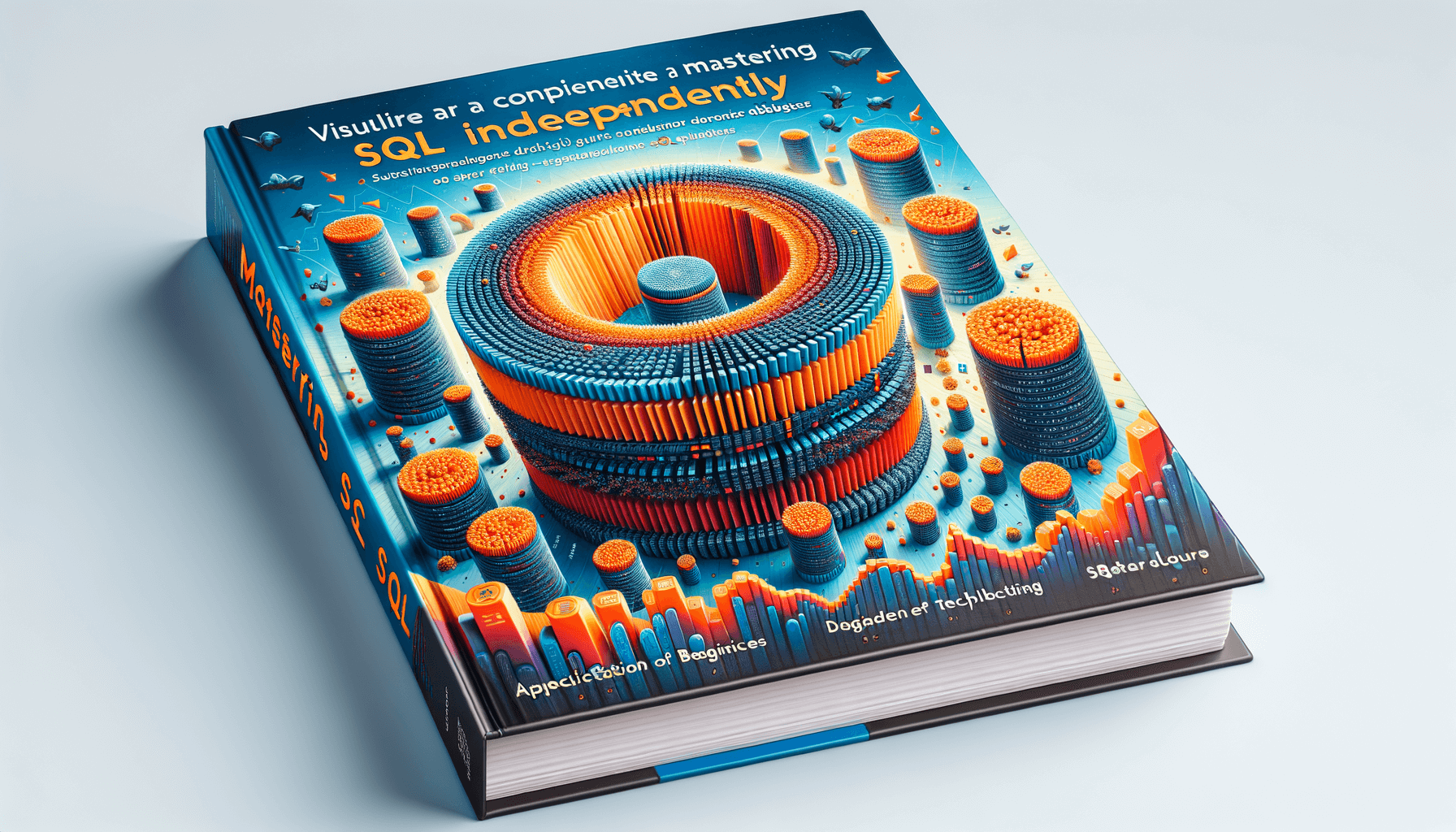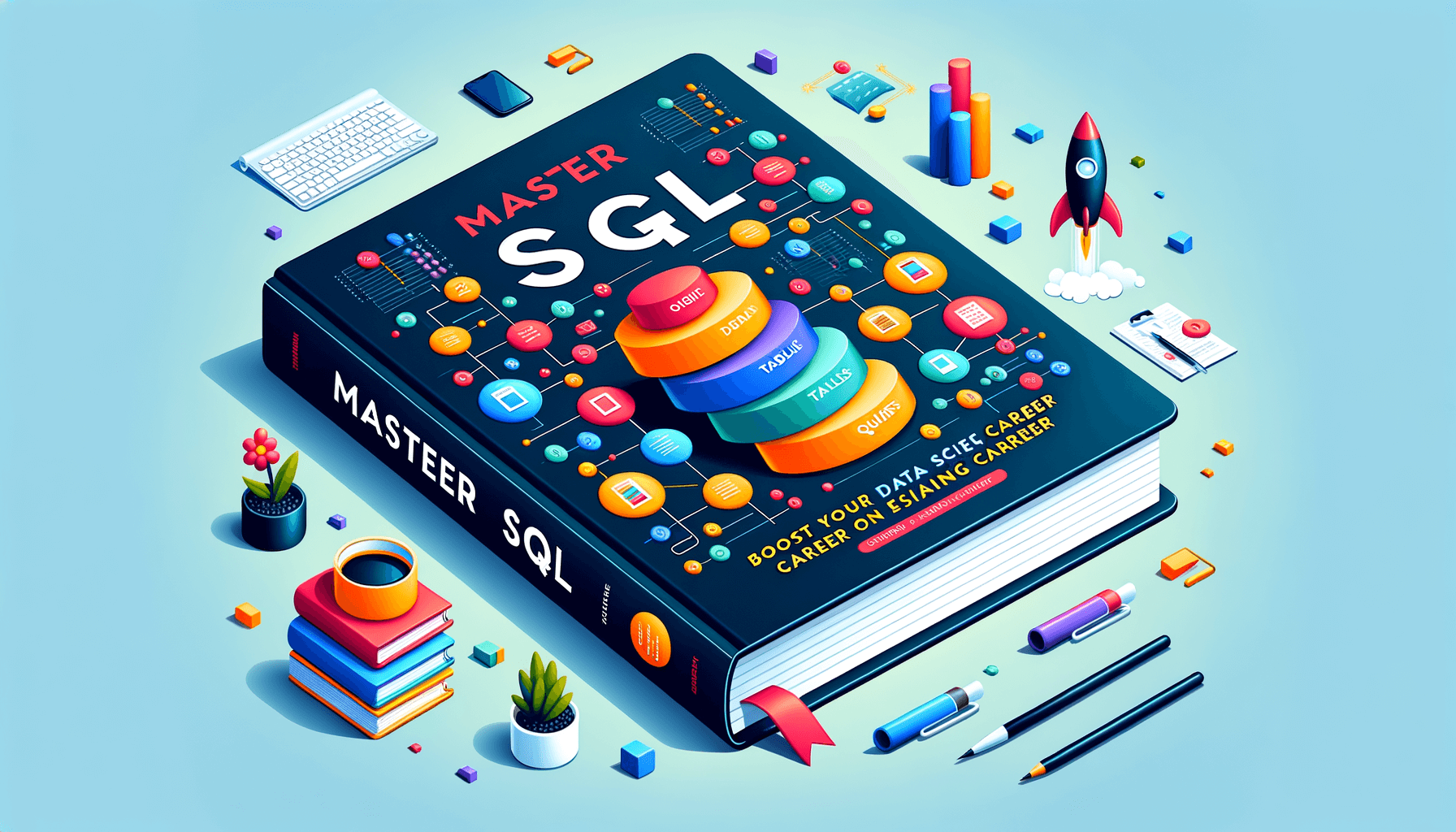A big variety of articles and resources

Can You Learn SQL on Your Own? A Comprehensive Guide to Self-Study
 Sia Author and Instructor
Learn SQL
Sia Author and Instructor
Learn SQL
10 minute read
Why Choose Self-Study for Learning SQL
Flexibility and Convenience
Self-learning through online resources and courses offers unparalleled flexibility and convenience. You can learn at your own pace and in your own space, making it ideal for those with busy schedules. Whether you prefer free YouTube videos or paid courses from reputable institutions like Coursera, Udemy, and Codecademy, the options are endless.
Cost-Effectiveness
One of the most compelling reasons to choose self-study is its cost-effectiveness. There are thousands of free resources available, including books, YouTube tutorials, blogs, and free online courses. Even paid courses are often more affordable than traditional classroom settings, making it a budget-friendly option.
Personalized Learning Pace
Self-study allows you to tailor your learning experience to your personal needs. You can spend more time on challenging topics and breeze through areas you're already familiar with. This personalized approach ensures that you fully grasp each concept before moving on, enhancing your overall understanding of SQL.
Self-study empowers you to take control of your learning journey, making it a highly effective way to master SQL.
Essential Resources for Self-Learning SQL
When embarking on the journey to learn SQL on your own, having the right resources is crucial. Self-learning through online resources and courses offers a flexible and cost-effective way to master SQL basics for beginners at your own pace. Below are some essential resources to consider:
Books and eBooks
Books and eBooks are a great starting point for anyone new to SQL. They provide structured content and in-depth explanations. Some popular titles include "SQL for Dummies" and "Learning SQL" by Alan Beaulieu. These resources are often available in libraries or for purchase online.
Online Courses and Tutorials
There are thousands of free and paid online courses available to learn SQL. Platforms like Coursera, Udemy, Codecademy, and SitePoint offer comprehensive courses that range from beginner to advanced levels. These courses often include video tutorials, quizzes, and hands-on projects to help you apply what you've learned.
Community Forums and Support
Engaging with community forums can be incredibly beneficial. Websites like Stack Overflow, Reddit, and SQLServerCentral offer a wealth of knowledge and support from experienced SQL professionals. These forums are great for troubleshooting issues, sharing tips, and finding answers to specific questions.
An easier way to learn: Learning SQL doesn't have to be a struggle. While many beginners get tripped up by abstract concepts and lack of hands-on practice, there's a better way. The key? Diving into SQL projects you genuinely care about.
Effective Strategies for Learning SQL on Your Own
Setting Clear Goals
Before diving into SQL, it's crucial to set clear, achievable goals. Define what you want to accomplish with SQL, whether it's for data analysis, web development, or another purpose. This will help you stay focused and motivated throughout your learning journey.
Creating a Study Schedule
Consistency is key when learning SQL on your own. Create a study schedule that fits your lifestyle and stick to it. This could be daily, weekly, or bi-weekly sessions. The important thing is to make studying a regular habit.
Hands-On Practice and Projects
The most effective way to learn SQL is through hands-on practice. Work on real-world projects that interest you. This not only reinforces your learning but also makes the process more enjoyable. Interactive platforms and coding exercises can be particularly helpful.
Remember, the key to mastering SQL is consistent practice and applying what you've learned in real-world scenarios.
Common Challenges and How to Overcome Them
Staying Motivated
Learning SQL independently can be daunting, especially when progress seems slow. Adopt a growth mindset—setbacks are chances to learn. Break big tasks into manageable steps with realistic goals. Lean on the SQL community when stuck; forums like Stack Overflow are invaluable.
If you hit a wall, these top resources can help you troubleshoot:
Microsoft's SQL Server Documentation - an in-depth troubleshooting guide
Stack Overflow - crowdsourced solutions from developers worldwide
YouTube SQL tutorials - visual walkthroughs of complex issues
Finding Reliable Resources
The internet is flooded with SQL learning materials, but not all are reliable. Look for resources with good reviews and recommendations. Here are some articles that will help you avoid roadblocks while learning and practicing SQL:
- How to Learn SQL
- 5 Reasons You Might Fail to Learn SQL
- How to Learn SQL Joins
- How to Stay Healthy When Learning SQL
- SQL Cheat Sheets
Understanding Complex Concepts
SQL concepts like joins and subqueries can be difficult to grasp. Hands-on practice is crucial for mastering these topics. Ready for some project ideas to put your skills to the test? Here are five advanced SQL challenges to tackle:
- Build a comprehensive railway management system
- Create a robust data warehousing system
- Analyze data from a digital music store
- Develop an inventory control management database
- Analyze motorcycle part sales or a similar niche market
Measuring Your Progress in SQL
Tracking Learning Milestones
To effectively measure your progress in SQL, it's crucial to set and track learning milestones. Regularly challenging yourself with new concepts and projects will help you gauge your understanding and keep you motivated. Consider maintaining a journal or a digital log to record your achievements and areas that need improvement.
Taking Practice Tests
Practice tests are an excellent way to assess your SQL skills. Websites like [sqlskillz.com vs. datacamp.com](https://sqlskillz.com) offer a variety of tests that can help you identify your strengths and weaknesses. These platforms often provide instant feedback, allowing you to focus on areas that require more attention.
Building Real-World Projects
Building real-world projects is one of the most effective ways to measure your SQL proficiency. Start with small projects that align with your interests or career goals. As you gain confidence, gradually take on more complex analyses. Independent SQL projects sharpen both your technical abilities and problem-solving skills, setting you up for success in advanced data analytics roles.
Embrace the challenges as opportunities to learn, and make the most of the wealth of SQL resources available online. With dedication and persistence, you'll be amazed at how far your SQL skills can take you!
Advanced Topics to Explore After Mastering the Basics
Window Functions
Window functions are essential for performing calculations across a set of table rows related to the current row. They allow you to create more complex queries by enabling operations like running totals, moving averages, and ranking. Mastering window functions can significantly enhance your data analysis capabilities.
Recursive Queries
Recursive queries are a powerful tool for querying hierarchical data structures. They allow you to create queries that refer back to themselves, enabling complex data retrieval tasks such as organizational charts or bill of materials. Understanding recursive queries can open up new possibilities for data manipulation and reporting.
Performance Optimization
Performance optimization is crucial for ensuring your SQL queries run efficiently, especially on large datasets. This involves techniques like indexing, query rewriting, and understanding execution plans. By focusing on performance optimization, you can make your SQL queries faster and more efficient, which is vital for real-world applications.
Embrace the challenges as opportunities to learn, and make the most of the wealth of SQL resources available online. With dedication and persistence, you'll be amazed at how far your SQL skills can take you!
Success Stories: Learning SQL Independently
Beginner to Pro Journeys
I took the plunge and enrolled in the SQL Basics course at LearnSQL.com. Despite having no prior IT experience, I was able to grasp the concepts and start writing SQL queries. Now, I use SQL in my daily work and it has opened up a whole new world of opportunities for me. If I – a humanities guy turned SQL enthusiast – could do it, so can you! You can read my story here.
Career Advancements
At first, learning SQL felt overwhelming. Complex concepts like CTEs and window functions seemed out of reach. The various SQL dialects used for different roles added to the challenge. But as I progressed and began incorporating SQL into my job, the benefits became clear:
- I could automate data tasks and work far more efficiently
- My SQL expertise made me a go-to resource on my team
- Across industries, SQL opened doors to exciting data career paths
Personal Testimonials
When I was learning SQL myself, I found the most success by working on projects related to my interests. Not only did this help me grasp SQL's real-world applications, but it also allowed me to build up a portfolio and maintain motivation. Getting my hands dirty with actual data, constructing databases, and tackling authentic problems made the whole process concrete and gratifying.
Now equipped with a solid foundation in basic SQL, continue your learning journey, applying your newfound skills to real-world scenarios. As you progress, remember that practice and exploration are key to mastering this versatile language. Embrace the possibilities that SQL offers in unlocking the vast potential of data-driven opportunities!
Discover how individuals have successfully mastered SQL on their own in our 'Success Stories: Learning SQL Independently' section. Ready to start your own journey? Visit our website to explore our comprehensive courses and get started today!
Conclusion
Learning SQL on your own is not only possible but also highly achievable with the plethora of resources available today. From free YouTube tutorials and blogs to paid courses on platforms like Coursera, Udemy, and Codecademy, there is something for every learning style and budget. The flexibility of self-learning allows you to progress at your own pace and tailor your study to fit your personal schedule. While having a supportive community can be beneficial, the key to mastering SQL lies in consistent practice and real-world application. By engaging with interactive courses, participating in data communities, and working on SQL projects, you can build a strong foundation and advance your skills. Remember, the journey of learning SQL is continuous, and with dedication and effort, you can unlock numerous opportunities in the data field. So, take the plunge, start learning, and keep practicing – you've got this!
Frequently Asked Questions
Can I learn SQL on my own?
Yes, you can. With the wealth of resources available online – including tutorials, online courses, and forums – you can learn SQL at your own pace. However, it's important to practice what you learn through exercises and real-world projects.
How long does it take to learn SQL?
The answer to this question depends on both your background and your goals for learning SQL. You can grasp the fundamentals in a few hours or a weekend, but mastering it will take more time and practice.
What are the best resources for self-learning SQL?
There are a plethora of books and courses available to learn SQL. These resources range from free YouTube videos to paid online courses from reputable institutions like SitePoint, Coursera, Udemy, and Codecademy.
Is SQL difficult to learn?
SQL is considered to be relatively easy to learn, especially for those with no prior programming experience. The syntax is straightforward, and there are many resources available to help you understand the concepts.
Do I need a programming background to learn SQL?
No, you do not need a programming background to learn SQL. Many beginners with no prior IT experience have successfully learned SQL and use it in their daily work.
How can I stay motivated while learning SQL on my own?
Setting clear goals, creating a study schedule, and engaging with a supportive community can help you stay motivated. Additionally, working on hands-on projects can make the learning process more enjoyable and rewarding.
Related Articles

Master SQL Effortlessly: The Easy Way to Learn SQL
9 minute read




